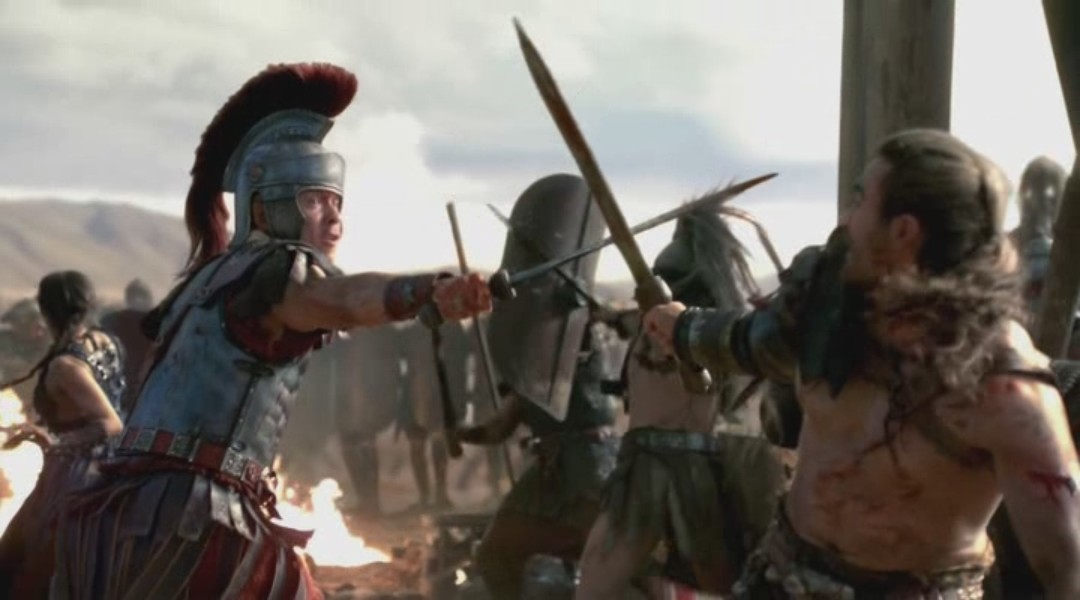
The three men together then effectively ruled Rome, Caesar as consul, by pushing through measures favored by Pompey or Crassus in the senate. Caesar married Calpurnia, the daughter of a wealthy and powerful Populare senator, and married his daughter Julia to Pompey to further cement their arrangements. Returning to Rome with high honors, Caesar entered into a business/political agreement with Pompey and Crassus, in 60 BCE, dubbed The First Triumvirate by modern scholars and historians (though no one in ancient Rome used that term). He was awarded a consulship by the senate. In Spain, Caesar defeated the warring rival tribes, brought stability to the region, and won the personal allegiance of his troops through his skill on the battlefield.

In 62 he was elected praetor, divorced Pompeia after a scandal she was implicated in with another man, and sailed for Spain in 61 as Propraetor (governor) of Hispania. Crassus, it is thought, helped fund Caesar's bid for election to the position of Chief Priest (Pontifex Maximus) which he won in 63 BCE. During this time he also became friends with the wealthiest man in Rome, Marcus Licinius Crassus. Rising now in prominence in Rome, Caesar had enough prestige to effectively support Gnaeus Pompeius (later known as Pompey the Great) for a generalship.

The First Triumvirateīack in Rome, Caesar was elected military tribune and, his wife Cornelia having died, married Pompeia, a wealthy Optimate granddaughter of the Emperor Sulla. This determination of Caesar's, to do exactly what he said he would do, became one of his defining characteristics throughout his life. He had the pirates' throats slit before crucifixion, however, in a show of leniency owing to their easy treatment of him in captivity. Upon his release, however, Caesar made good on that threat. He is said to have repeatedly told them that, upon his release, he would hunt them down and have them crucified for the affront to his family and personal dignity and this threat the pirates understood as a joke. While he was held captive by them, Caesar was treated well and consistently maintained a friendly relationship with the pirates. In keeping with the high opinion he had of himself, it is said that when the pirates told him he would be ransomed for twenty talents, Caesar claimed he was worth at least fifty. In 75 BCE, while sailing to Greece, Caesar was kidnapped by pirates and held for ransom. Left without means of supporting himself or his family, Caesar joined the army. Still, he was stripped of his position as priest and his wife's dowry was confiscated. Caesar was targeted and fled Rome but his sentence was lifted through the intercession of his mother's family. When the Roman ruler Sulla declared himself dictator, he began a systematic purge of his enemies and particularly of those who held to the Populare ideology. As a priest not only had to be of patrician stock, but married to a patrician, Caesar broke off his engagement to a plebian girl and married the patrician, Cornelia, daughter of a high profile and influential member of the Populares, Lucius Cinna. Deciding that belonging to the priesthood would bring the most benefit to the family, he managed to have himself nominated as the new High Priest of Jupiter.

When he was sixteen, his father died and Caesar became the head of the family.

The concept of appealing to the people for support, rather than seeking approval from the Roman Senate or the other Patricians, would work well for Caesar later in life. It should be understood that the Optimate and the Populare were not political parties in conflict with each other but, rather, political ideologies which many people shifted toward and from, regardless of class in society. Both held to the Populare ideology of Rome which favored democratization of government and more rights for the lower class as opposed to the Optimate factions' claim of the superiority of the nobility and traditional Roman values which favored the upper classes. His father, also Gaius Julius Caesar, was a Praetor who governed the province of Asia and his mother, Aurelia Cotta, was of noble birth. Gaius Julius Caesar was born 12 July 100 BCE (though some cite 102 as his birth year).


 0 kommentar(er)
0 kommentar(er)
